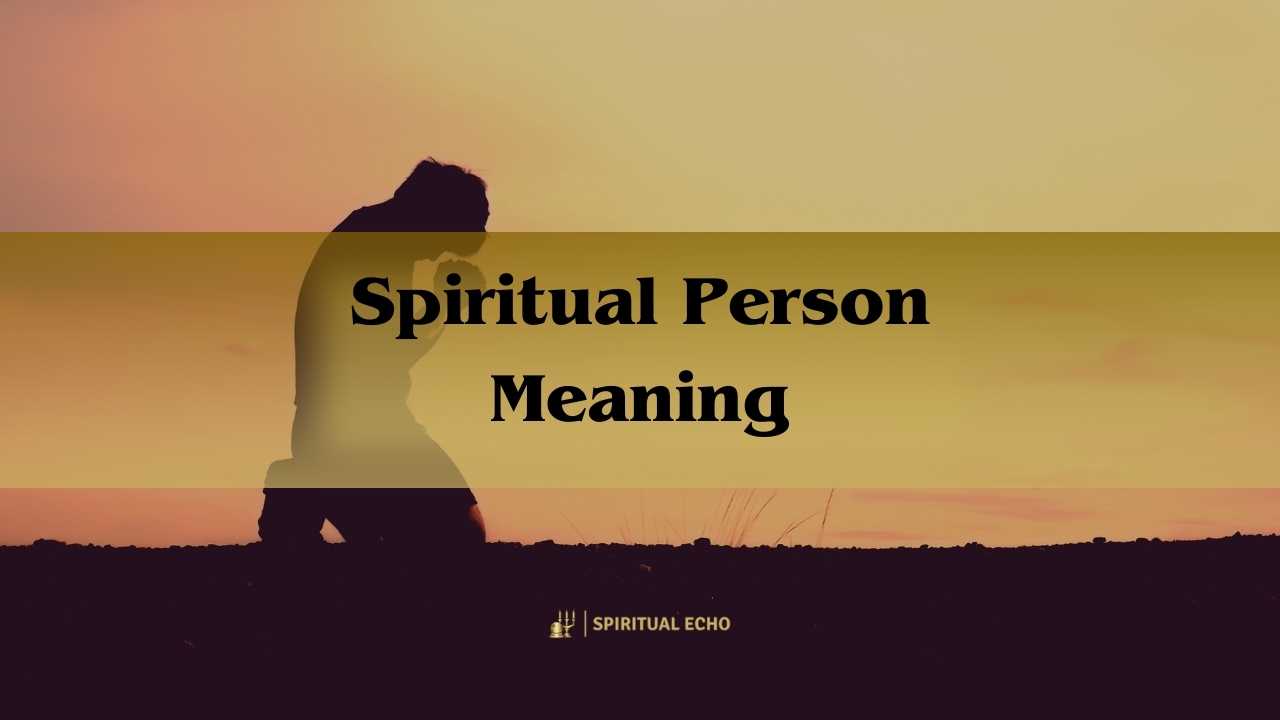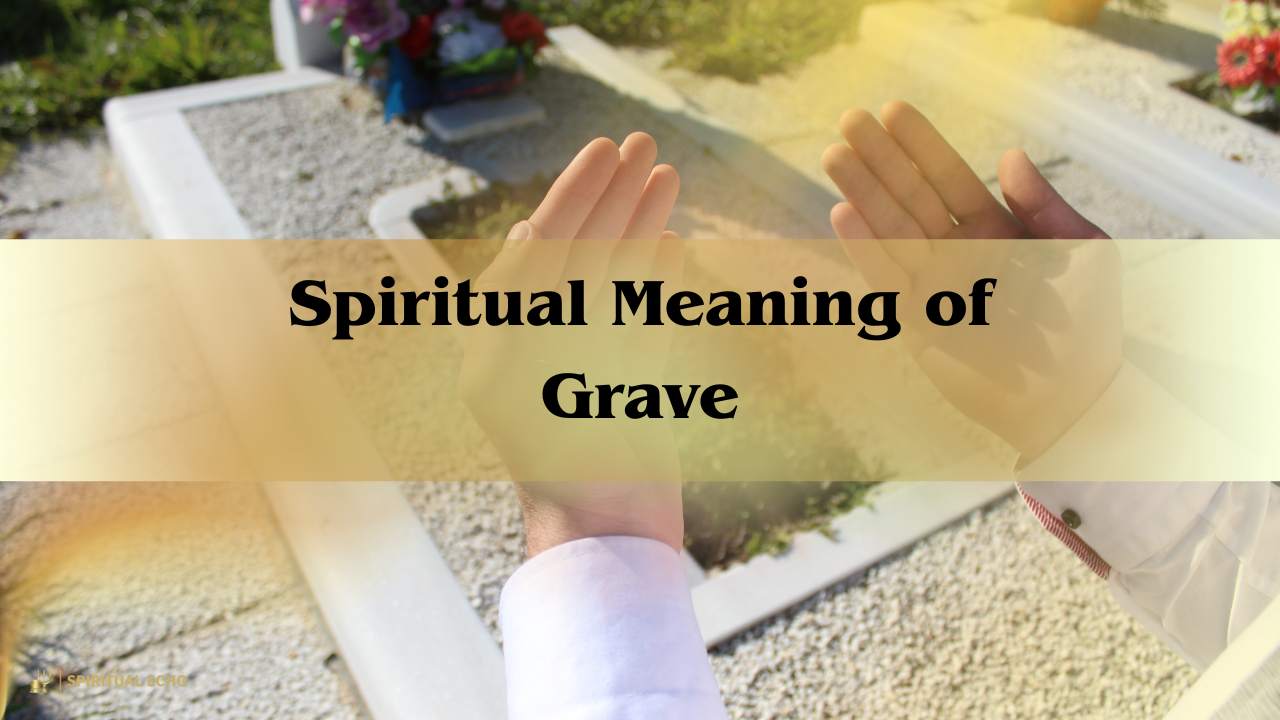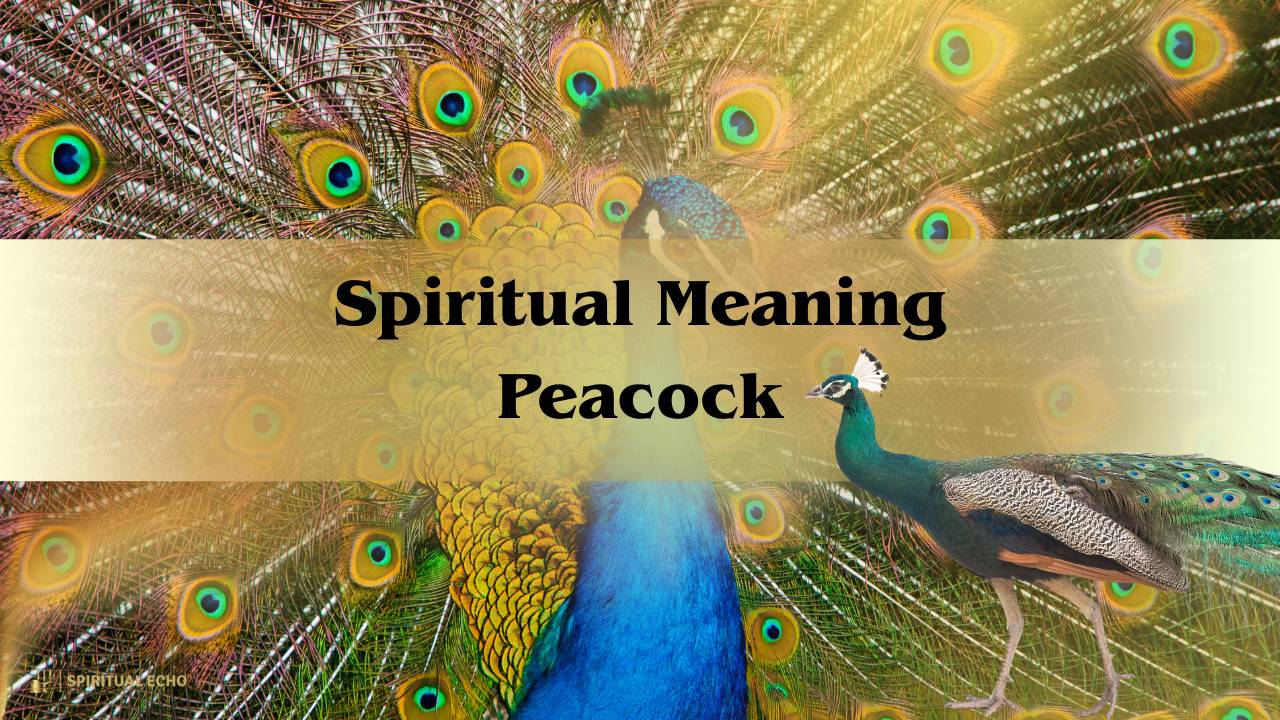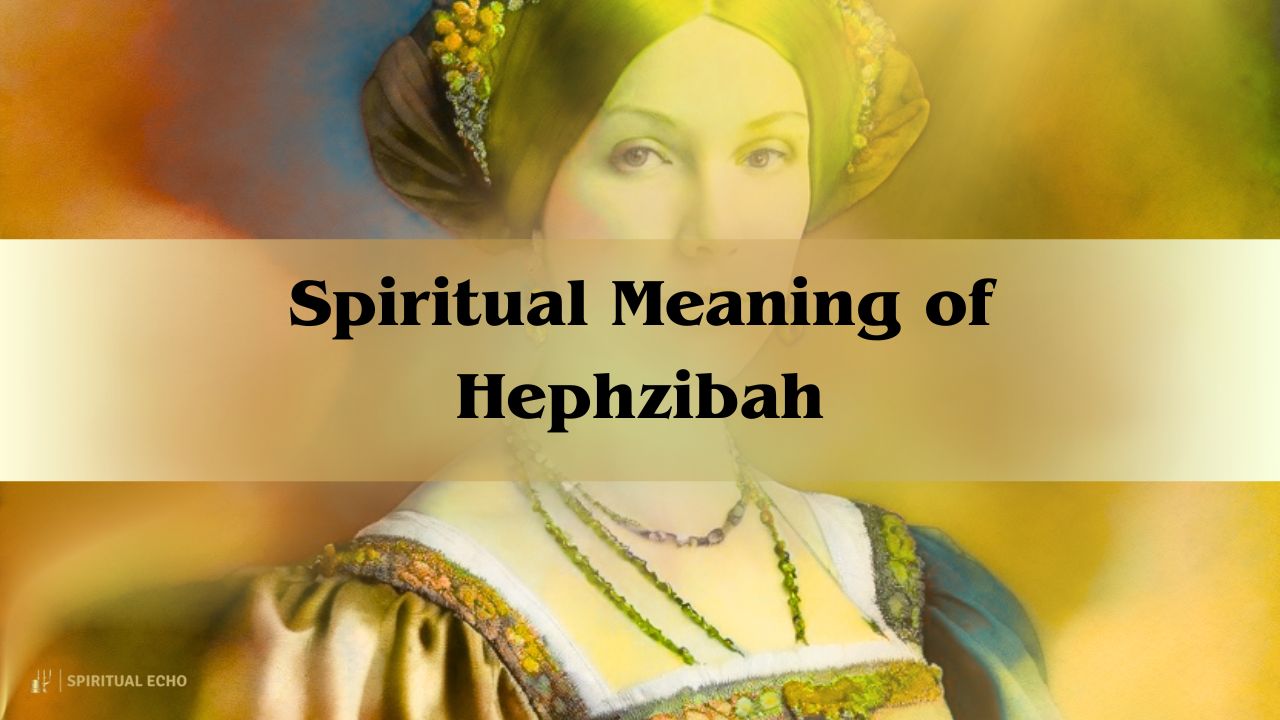A spiritual person is someone who focuses on their inner self and connection to something greater than themselves. Seeking meaning and purpose in life.
Being spiritual does not necessarily mean following a specific religion. It is more about a personal journey to understand the deeper aspects of existence.
Spiritual individuals may explore their beliefs through practices like meditation, prayer, or simply by being mindful and appreciative of the world around them.
Spiritual person meaning is about finding a sense of peace, harmony, and understanding within oneness, and recognizing the interconnectedness of all spiritual things.
Being a spiritual person involves a quest for a meaningful and fulfilling life that goes beyond material concerns.
What does it mean to be a spiritual person? Being a spiritual person means focusing on your inner self and seeking a connection to something bigger than yourself. Spiritual individuals engage in practices like meditation and prayer. It is about finding a sense of peace and understanding within and recognizing the interconnectedness of all things.
- Importance Of Understanding The Spiritual Person Meaning
- What Does It Mean When Someone Says They Are Spiritual?
- What Is A Spiritual Person According To The Bible?
- Exploring The Benefits Of Being A Spiritual Person
- Personal Growth And Self-Awareness In Spirituality
- Seeking Meaning And Purpose In Life Through Spirituality
- Meditation And Mindfulness As Tools For Spiritual Growth
- Connecting With Something Greater Than Yourself
- Finding A Sense Of Community And Support In Spirituality
- Balancing Spirituality With Other Aspects Of Life
- Challenges And Misconceptions About Spirituality
- FAQ About Spiritual Person Meaning
- Final Thought 💭
Importance Of Understanding The Spiritual Person Meaning
Understanding the meaning of being a spiritual person is important because it helps us connect with our inner selves and find purpose in life.
When we grasp the essence of spirituality, we recognize that it is not limited to any specific religious beliefs but involves a personal journey for meaning.
This understanding allows us to appreciate the diversity of spiritual practices and respect others’ paths. Holding spirituality can bring a sense of peace, compassion, and gratitude into our best lives, showing a deeper connection with ourselves and the world around us.
It encourages a more holistic approach to life, emphasizing values and personal growth over material pursuits.
Understanding what a spiritual person means empowers us to lead more fulfilling and meaningful lives, promoting harmony within ourselves and in our relationships with others.
What Is Spiritual Person Meaning?
The meaning of a spiritual person lies in someone who looks inward, seeking a connection with something greater than themselves.
What is spiritual person meaning, is not tied to a specific religion but involves a personal journey for deeper understanding and purpose in life.
Spiritual individuals often practice meditation, prayer, or mindfulness, aiming for inner peace and recognizing the interconnectedness of all things.
Being a spiritual person emphasizes values like kindness, compassion, and gratitude, contributing to a more meaningful and harmonious life.


Characteristics Of A Spiritual Person
A spiritual person tends to have certain distinctive qualities that shape their outlook on life. They seek a connection with something beyond the material world, exploring inner dimensions for meaning and purpose.
Characteristics of a spiritual person, journey might involve practices like meditation, prayer, or reflection. Compassion and kindness are common traits, as spiritual individuals recognize the interconnectedness of all beings.
They find joy in simple moments and have a deep appreciation for the beauty in the world. Humility is another characteristic, acknowledging that there is always room for personal growth and learning.
Spiritual people align their actions with values that prioritize inner fulfillment over external achievements. The characteristics of a spiritual person revolve around a quest for understanding, compassion, and a harmonious connection with oneself and the broader existence.
Understanding The Concept Of Spirituality
In understanding spirituality, one often holds a holistic view of life, recognizing the interconnectedness of all things. This concept encourages a sense of gratitude and compassion towards oneself and others.
Spirituality emphasizes values such as love, forgiveness, and acceptance, promoting a positive and harmonious way of living. It invites individuals to explore their inner selves, showing self-awareness and personal growth.
While the concept of spirituality can vary among individuals, cultures, and traditions, its essence lies in the pursuit of a meaningful and fulfilling existence.
Understanding spirituality, opens the door to a deeper connection with the mysteries of life, encouraging a continuous journey of self-discovery and a richer appreciation for the world around us.

What Does It Mean When Someone Says They Are Spiritual?
What does it mean when someone says they are spiritual, it means they are on a personal journey to explore deeper aspects of life and find meaning beyond the everyday.
Being spiritual does not necessarily tie to a specific religion but involves a quest for connection with something greater than oneself.
People who identify as spiritual often engage in practices like meditation, prayer, or reflection to nurture their inner selves.
It is about seeking a sense of purpose, peace, and understanding. Being spiritual may also involve valuing qualities like compassion, kindness, and gratitude.
A spiritual person’s dream is often about finding deeper meaning and feeling connected to something greater.
Essentially, it is a unique and individual path that emphasizes personal growth, a harmonious connection with others, and an appreciation for the beauty in the world.
What Does It Mean When Someone Says Your Spiritual?
What does it mean when someone says you’re a spiritual person, When someone says you, they are likely recognizing that you have a deep connection with your inner self and a sense of purpose in life.
Being considered spiritual suggests that you may engage in practices like meditation, prayer, or reflection to nurture your spiritual side. It implies a personal journey to explore the meaningful aspects of existence.
People may see you as someone who values qualities such as kindness, compassion, and gratitude. Being labeled as spiritual suggests that you prioritize inner growth, seek a harmonious connection with others, and appreciate the beauty in the world around you.
What Is A Spiritual Person According To The Bible?
Mention in the Bible, someone who is a spiritual person seeks a close relationship with God and strives to live according to God’s principles.
The Bible emphasizes the importance of faith, prayer, and obedience to God’s commandments as key aspects of spiritual life.
It describes spiritual individuals as those who cultivate qualities like love, kindness, patience, and self-control, guided by the Holy Spirit.
The Bible encourages believers to grow in spiritual maturity, deepen their understanding of God’s Word, and bear fruits of the Spirit, such as love, joy, peace, and goodness.

A spiritual kind person, as per the Bible, is one who aligns their life with God’s will, seeks righteousness, and lives with a sense of purpose and faith.
spiritual
kind
person

Spirituality Meaning In Religion
In religion, spirituality carries the meaning of connecting with the sacred aspects of existence. It involves a personal journey to deepen one’s relationship with a higher power or ultimate reality.
For example, in Christianity, spirituality may include prayer, worship, and studying the Bible to show a closer connection with the spirit of God. Hinduism encompasses various spiritual rituals, meditation, and devotion to deities.
Buddhism emphasizes spiritual development through meditation and the Eightfold Path. These examples highlight how spirituality within different religions involves specific practices aimed at nurturing a connection with the sacred and cultivating a meaningful relationship with the higher power.
Spirituality Vs Religion
Spirituality and religion, while related, have distinct differences. Religion typically involves organized beliefs, rituals, and practices within a specific faith community, often guided by a set of doctrines or scriptures. It has an established structure with clergy and organized worship services.
On the other side, the definition of spirituality is a more personal and individual journey of seeking meaning, connection, and purpose in life.
It does not necessarily require adherence to organized religious practices and can encompass a broad range of beliefs.
While religion can provide a framework for spirituality, one can be spiritual without identifying with a particular religion.
Spirituality focuses on inner experiences, personal growth, and a sense of connection to something greater than oneself, emphasizing the individual’s unique path of exploration and understanding.
Exploring The Benefits Of Being A Spiritual Person

Exploring the benefits of being a spiritual person reveals several positive aspects that contribute to overall wellness.
One key advantage is the sense of inner peace and calm that accompanies spiritual practices such as meditation or prayer.
This can help reduce stress and promote mental well-being. Spirituality shows a greater sense of purpose and meaning in life, providing a guiding framework for personal values and decisions.
Spiritual individuals exhibit qualities like compassion, kindness, and gratitude, leading to improved relationships and a positive impact on the community.
A spiritual perspective can offer solace during challenging times and provide a source of hope and resilience.
Note: Holding spirituality is a way to nurture the soul, contributing to a more balanced life.

Personal Growth And Self-Awareness In Spirituality
Engaging in spirituality goes hand in hand with personal growth and self-awareness. It is like a journey where you discover more about yourself and the world around you.
Spiritual practices, such as meditation or reflection, provide opportunities to dig into your inner thoughts and emotions. This introspection shows a better understanding of your values, strengths, and areas for improvement.
As you navigate this spiritual path, you may find yourself becoming more patient, compassionate, and open-minded.
The process of self-awareness in spirituality involves acknowledging your actions, thoughts, and their impact on your life and others.
Holding personal growth and self-awareness through spirituality can lead to a more fulfilling and purposeful existence.
It is like nurturing the roots of a tree, as you grow spiritually, you become more grounded, resilient, and attuned to the beauty of life.
How About Exploring More of Our Insightful Reads?
Spiritual Meaning Of The Name Eric: Name Eric Meaning
Different Ways To Practice Spirituality
There are various simple and diverse ways to practice spirituality, allowing individuals to find what resonates with them. One common approach is meditation, where you focus your mind and create a sense of inner calm.
Prayer is another practice, involving communication with a higher power or expressing gratitude. Connecting with nature, whether through walks, hikes, or simply appreciating the outdoors, is a spiritually enriching experience for many.
Reading inspirational literature, attending religious services, or participating in community rituals are additional ways to nurture your spiritual side. Acts of kindness and compassion towards others can also be a form of spiritual practice.
The beauty of spirituality lies in its flexibility, enabling individuals to choose practices that align with their beliefs and resonate with their hearts.

Seeking Meaning And Purpose In Life Through Spirituality
Engaging in spirituality is a way of seeking meaning and purpose in life. It involves a personal journey to understand the deeper aspects of existence beyond the routine of everyday living.
Through practices like meditation, prayer, or reflection, individuals explore their beliefs and connect with something greater than themselves.
Spirituality provides a framework for finding significance in experiences and relationships, offering a guiding light for personal values and decisions.
It encourages individuals to reflect on their life’s purpose, showing a sense of fulfillment and direction.
The pursuit of spirituality is a pathway to discovering meaning and purpose that goes beyond the surface of life, enriching one’s journey with a deeper sense of connection and understanding.
How About Exploring More of Our Insightful Reads?

Meditation And Mindfulness As Tools For Spiritual Growth
Meditation and mindfulness serve as valuable tools for spiritual growth, offering simple yet powerful ways to enhance one’s inner self. Meditating involves finding a quiet space to focus the mind, promoting a sense of calm and clarity.
This practice allows individuals to connect with their inner thoughts and emotions, showing self-awareness and a deeper understanding of oneself.
Mindfulness, on the other hand, encourages being fully present in the moment and appreciating each experience without judgment.
Both meditation and mindfulness provide opportunities for reflection and introspection, aiding in the development of patience, compassion, and a greater sense of purpose.
Incorporating these practices into daily life can contribute to spiritual growth by nurturing a connection with oneself and the world, showing a balanced and fulfilling existence.

How To Cultivate Spirituality In Your Own Life
Cultivating spirituality in your own life involves holding practices that resonate with your beliefs and values. Start by setting aside time for reflection, whether through meditation, prayer, or simply quiet contemplation.
This allows you to connect with your inner self and explore deeper aspects of life. Reading inspirational texts or engaging in activities that bring you a sense of peace and joy can contribute to your spiritual wellness.
Connecting with nature, practicing gratitude, and incorporating acts of kindness into your daily routine are also effective ways to nurture spirituality.
It is essential to be open-minded and explore various avenues, as spirituality is a personal journey that can take different forms for different people.
Incorporating these practices into your life, you can cultivate a sense of meaning, purpose, and connection with the world around you.
Connecting With Something Greater Than Yourself

Connecting with something greater than yourself is about recognizing and holding a sense of existence beyond your individual identity.
This connection can take various forms, such as a spiritual belief, a connection with nature, or a commitment to a greater purpose.
It involves acknowledging that there’s more to life than just personal concerns and individual experiences. For some, this connection may manifest through religious practices, prayer, or meditation, while for others, it might be found in acts of kindness and compassion towards others.
The essence lies in understanding that we are part of a broader tapestry of existence, and in acknowledging this connection, individuals often find a deeper sense of meaning, fulfillment, and a harmonious relationship with the world around them.

Finding A Sense Of Community And Support In Spirituality
In spirituality, finding a sense of community and support plays a crucial role in one’s journey. Being part of a spiritual community provides a space where individuals with similar beliefs and values can come together to share experiences, learn, and grow.
This sense of belonging shows a supportive environment, encouraging individuals to navigate their spiritual paths with understanding and encouragement.
Whether through religious gatherings, meditation groups, or online communities, the shared journey creates a feeling of unity and connection.
This community support can be a source of strength during challenges, offering guidance, companionship, and a sense of shared purpose.
In spirituality, the sense of community becomes a valuable aspect, providing a foundation for personal growth and a network of encouragement along the way.
Balancing Spirituality With Other Aspects Of Life
Balancing spirituality with other aspects of life involves integrating your spiritual beliefs and practices into your daily routine while also attending to other responsibilities.
It is like finding a harmony between your inner connection and the demands of the outside world. This balance may include setting aside time for meditation, prayer, or reflection amidst the busyness of daily life.
It is essential to recognize that spirituality can coexist with work, relationships, and spiritual goals. Maintaining this balance allows you to stay grounded and focused, bringing the benefits of spiritual practices into various areas of your life.
By incorporating mindfulness and gratitude into everyday activities, you can weave spirituality seamlessly into your routine, creating a holistic and fulfilling approach to living.

Embracing Spirituality As A Personal Journey
Embracing spirituality as a personal journey means making it your own unique exploration of deeper meaning and connection.
It is not about following a set path or adhering to strict rules but rather discovering what resonates with your inner self.
This journey involves practices like meditation, prayer, or reflection, which allow you to explore your beliefs and understand the essence of existence.
Embracing spirituality on a personal level is about finding peace, joy, and purpose in your own way, without judgment or comparison.
It is acknowledging that everyone’s journey is different and respecting the diverse ways people connect with something greater than themselves.
Embracing spirituality as a personal journey is a commitment to continuous self-discovery and a deeper understanding of life’s mysteries.
Challenges And Misconceptions About Spirituality
Challenges and misconceptions about spirituality can sometimes arise due to varying beliefs and misunderstandings.
One challenge is the idea that spirituality is exclusively tied to organizing to practice a religion, when, in reality, it can be a personal journey beyond religious boundaries.
The challenge involves finding time for spiritual practices amid busy lives, highlighting the struggle to strike a balance. Misconceptions may also arise from equating spirituality with specific behaviors or stereotypes.
It is important to recognize that powerful spiritual paths differ for everyone. Open communication and understanding can help overcome challenges and dispel misconceptions, showing a more inclusive and supportive perspective on individual spiritual journeys.


FAQ About Spiritual Person Meaning
What Is Being A Spiritual Person?
Being a spiritual person involves a personal journey to find meaning beyond everyday life. It’s about connecting with something greater and practicing kindness and gratitude. Regardless of religion, it emphasizes inner peace, mindfulness, and understanding of our interconnectedness. It’s a path of self-discovery, leading to a more fulfilling and meaningful life.
What Is The Spiritual Definition Of A Person?
The spiritual definition of a person goes beyond the physical, emphasizing inner connection and purpose. It involves a journey to understand life’s deeper meaning, often through practices like meditation or prayer. Regardless of religious labels, it focuses on qualities like kindness, compassion, and a sense of interconnectedness, guiding a meaningful existence.
What Are The Spiritual Traits Of A Person?
The meaning of spiritual traits of a person encompass qualities like truth and kindness, compassion, and gratitude. A spiritually inclined individual seeks inner peace, often through practices such as meditation or prayer. Regardless of religious affiliation, they value a sense of purpose, understand the interconnectedness of all things, and prioritize a meaningful and fulfilling life.
Does A Spiritual Person Believe In God?
Not all spiritual people believe in a traditional God. Spirituality is diverse; it may involve a higher power, the universe, or a personal connection to something greater. It’s a personal journey that varies, allowing for different beliefs beyond organized religions, emphasizing inner growth, and finding meaning in diverse ways.
Can A Person Be Spiritual Without Being Religious?
Yes, a person can be spiritual without adhering to any particular religion. Being spiritual means is more about a personal connection to the divine or transcendent while many religious people often includes adherence to organized beliefs and practices.
What Does It Mean To See The World Through A Spiritual Lens?
Seeing the world through a spiritual lens involves perceiving the interconnectedness of all things, recognizing the sacred or divine in everyday experiences, and approaching life with a sense of compassion, gratitude, and purpose.
How Does Someone Become A Spiritual Man?
Becoming a spiritual man often involves practices like meditation, prayer, and self-reflection. It also involves developing virtues such as compassion, gratitude, and humility, and cultivating a deeper understanding of the self and one’s place in the universe.
What Does 1 Corinthians Say About Being A Spiritual Person?
In 1 Corinthians, the apostle Paul discusses the contrast between the things of the spirit and the things of the flesh, and encourages us to be more spiritually minded. He emphasizes the importance of cultivating a mindset in line with spiritual values and virtues.
Final Thought 💭
A spiritual person meaning revolves around a personal journey of inner exploration and connection to something greater than oneself. It goes beyond strict religious affiliations and involves practices like meditation, prayer, or reflection.
A spiritual person seeks meaning, purpose, and understanding in life, valuing qualities like compassion and gratitude.
This journey is unique for each individual, underlining personal growth and the recognition of the interconnectedness of all things.
Being a spiritual person is not about adhering to a set of rules but rather about finding a sense of peace, harmony, and fulfillment within oneself and in the broader context of existence. It is a continual quest for a more meaningful and purposeful life.
Enhance Your Soul Spiritually By Reading More Articles About Spiritual Awakening
- Spiritual Wellness Meaning: Spiritual Health
- What Does It Mean To Grow Spiritually: Spiritual Growth
- Define Spiritual Health: Wellness Spirituality
- Spiritual Journey Meaning: Spiritual Path
- Spiritual Benefit Meaning: Benefits Of Spiritual Wellness
- Awakening Meanings: Definition And Spiritual Meaning Of Awakening
- Spiritual Awakening Meaning: Sign Of A Spiritual Awakening



































Leave a Reply